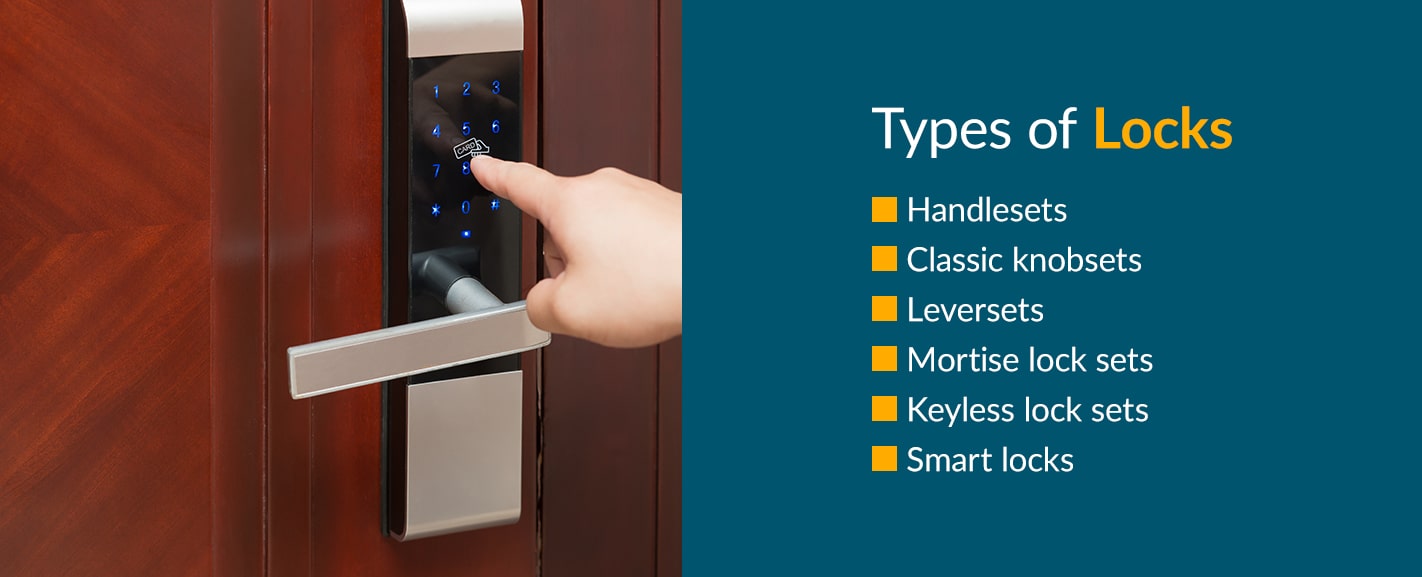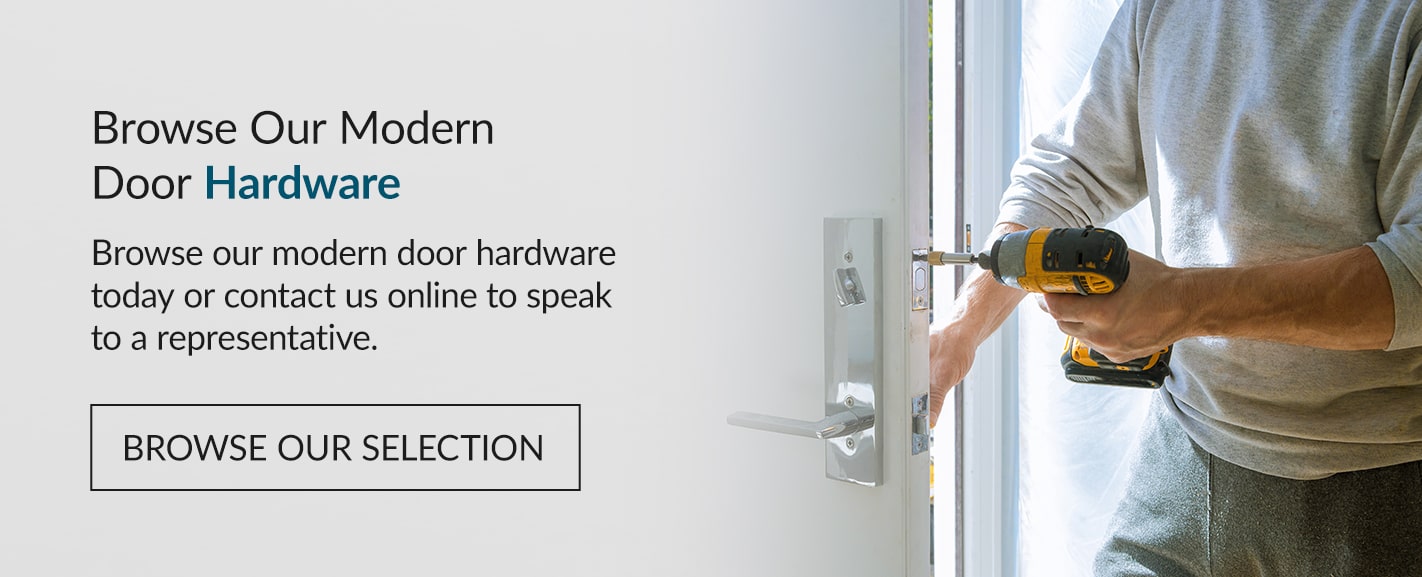The future of door hardware relies on improvements in smart home technology and touchless locks. From design considerations to opportunities for technological advances, door hardware is seeing more possibilities than ever.
Design Considerations
When considering the door hardware market, it may be a good idea to look at the possibilities for adding motorized functions to door design. Here are four current door designs that can utilize motors effectively.
1. Multislide Doors
A multislide door can help bring the outdoors inside with the added convenience of motorized options. For those who want to enjoy the weather during the warmest parts of the day or the sunshine in the summer, a motorized multislide door opens up the room without making the door an actual window.
2. Windows
Windows designed with motors or automatic locks are beloved by customers everywhere. With a single button, a person can manage all the windows in a room or building. Some have begun installing pass-through bar windows, another excellent design consideration.
3. Pivot Doors
A pivot door without a motor could be a dangerous design. When coupled with automation, pivot doors are often easy to use and convenient for the user. With smooth operations, motorized pivot doors allow manufacturers to design new doors larger and larger.
4. Smart Locks
The newest design mechanisms for doors are smart locks that point to future signs of the modern look. With tech-enabled hardware, individuals can operate many smart locks with fingerprint technology or mobile apps to allow the user to open the door whenever they need.
Current Technology
Current door handle and lock technology relies on a mixture of classic designs and improved technological mechanics. Whether your home, property or business needs a smart lock for safety or classic knobsets for a traditional feel, there’s probably something on the market for you.

Types of Locks
Locks are available in a variety of modern designs. From lever sets to mortise lock sets, any purchasing agent or engineer is sure to find a current design that suits their needs. The most common lock types include:
- Handlesets: Handlesets come with a deadbolt and a more extended handle that requires a keyed entry for access. Many manufacturers design these lock types as continuous pieces.
- Classic knobsets: A traditional doorknob with a classic keyed deadbolt, the classic knobset is the most common type of lock. The only drawback of classic or rounded handles is that the handle may be difficult for those with arthritis to grasp.
- Leversets: An alternative to knobsets, lever sets use a horizontal handle to push down and open the door. The lever set lock uses a keyed deadbolt to release the latch.
- Mortise lock sets: Mortise lock sets use a deep-pocket locking mechanism and design to contain the lock in a metal casing embedded into the door’s frame.
- Keyless lock sets: Keyless lock sets use smart technology or keypads to unlock the door. They are convenient for people who forget to lock doors or need extra assistance opening doors.
- Smart locks: These locks are becoming very popular among consumers who want to rely on apps and proximity sensors to open their doors. Many options are Wi-Fi enabled so that users can open doors from anywhere.
Types of Door Handles
The most common door handles now have been used for many years. Some manufacturers have also created new and modern additions to door handles that can be added in sleek and minimalist designs. The most popular door handle types include:
- Doorknobs: These door handles are round in shape and require entry to the room by turning the knob.
- Handles: With fancy or minimalist styles, door handles allow the user to pull the door open.
- Levers: Door levers have horizontal handles that open the door through a pushing mechanism.
- Passage knobs: Passage knobs do not use locks and are placed in rooms where privacy is not a concern, such as closets or room entrances.
- Dummy knobs: Dummy knobs do not turn or lock and are commonly found in closets, pantries or utility spaces.
- Half-dummy knobs: A half-dummy knob functions as a pull door without a turning mechanism. Many half-dummy knobs are found on double doors or French doors.
- Privacy knobs: Indoor privacy knobs use a simple push-button or turn-button lock design to offer privacy in bedrooms or bathrooms.
- Pocket handles: With a recessed design and a door pull, the pocket handle is most common in older homes, with doors that slide into walls.
- Surface-mount handles: Surface-mount handles are installed on the door’s surface and use a clamp or hook to latch onto the frame.
- Mortise handle sets: The lock and handle are separate on mortise handles and operate with a thumb latch on the backplate.
Recent Technological Advancements
Any marketing or purchasing agent would do well to keep up with recent technological advancements in door hardware. With the rise in touchless locks and wireless systems, many buildings have updated their door handles to improve the safety and convenience of their egress.
1. Touchless Devices
Many new touchless lock devices come with remote control fobs, motion sensor controls or proximity cards to assist with high-traffic hardware. Door cameras are also popular among consumers who want to control physical access while watching over who enters the building. Touchless devices have enabled customers to prevent and check on attempted access with alarm systems and security features. In the case of emergencies, many touchless locks also keep track of who has entered and exited the building throughout the day.
2. Drive-Through Openers
For buildings and homes that have garages or large drive-through doors, drive-through openers are an advancement that has allowed owners to activate closing automatically. People can also set timed closures or override timed closures with the click of a button.
3. Cellphone Activated Locks
New locks allow users to activate them with their cell phones from any location. Whether they leave the door unlocked or use a door without manual keys or codes, cell phone-activated locks are an excellent choice for those who want quick and easy access to buildings.
4. Wireless Systems
Wireless systems do not require extensive wiring like the previous new designs. They instead use solar and battery backup power to run the system and can even operate in the case of a power failure. As a less expensive option, these systems can be moved along various locations and often rely on a VPN or radio-controlled transmission.
5. High-Security Areas
For areas that require high security, many advancements have been made that integrate facial recognition, cameras, intercoms and identification cards in doorways and windows. Technology allows for a safer and more secure environment, whether the building needs a remote lock or computer activation.
Future of Hardware Technology
Regarding home automation, the Internet of Things (IoT) has become a critical point of design consideration for the market’s windows, doors and skylights. The future design of hardware technology is automated doors and windows integrated with various automation systems. The system license, Matter, is quickly becoming the smart home standard for companies like Apple, Amazon, Google, Samsung, Microsoft and LG, among many others.
Using Matter means many companies will create a universal smart home standard and window or door installation companies will not need to choose between Bluetooth, Z-Wave, Zigbee or other connectivity applications. The uniform system can communicate with other smart components in the home, making it easy to create a house that meshes its technology together.
From Google Assistant and HomePod to the Amazon Echo, many home smart systems will be supported by Matter. The move to switch to this platform is coming fast, allowing residents to automate everything from their garage doors to their lights and connect their front and back doors to the device or application.
Browse Our Modern Door Hardware
At Rockwell Security, we manufacture and distribute door and window hardware to offer the best safety and style for your needs. Based in Northern California, our company provides quality materials and durable solutions with the latest design elements for U.S. and Canadian customers. With consistent quality and unmatched manufacturing capabilities, our professional team members are ready to fulfill any product request our customer wants. Browse our modern door hardware today or contact us online to speak to a representative.




Trackbacks & Pingbacks
[…] of quality locks, burglar guards or alarms, video doorbells letting you see who you let inside, and Wi-Fi-enabled locks for greater surveillance. The reassurance of these measures can help if you’ve ever experienced a […]
[…] to break under force. A different model — like a Mortise lock set — would embed a door’s lock in a deep-set metal casing within the frame that won’t shatter like a wooden borehole. You could even get a smart lock to […]
[…] A various version– like a Mortise lock collection– would install a door’s lock in a deep-set steel casing within the structure that won’t ruin like a wooden borehole. You might also obtain a smart […]
[…] different variation– like a Mortise lock collection– would install a door’s lock in a deep-set steel casing within the structure that won’t spoil like a wooden borehole. You could also acquire a wise […]
[…] A various variant– like a Mortise lock collection– would mount a door’s lock in a deep-set steel housing within the structure that will not spoil like a wood borehole. You can also acquire a sensible lock […]
[…] version– like a Mortise lock collection– would certainly mount a door’s lock in a deep-set steel real estate within the framework that will certainly not spoil like a timber borehole. You can also obtain a […]
[…] to break under force. A different model — like a Mortise lock set — would embed a door’s lock in a deep-set metal casing within the frame that won’t shatter like a wooden borehole. You could even get a smart lock to […]
[…] to break under force. A different model — like a Mortise lock set — would embed a door’s lock in a deep-set metal casing within the frame that won’t shatter like a wooden borehole. You could even get a smart lock to […]
Comments are closed.